By Liz Ticong
Top AI Companies in 2025: Visionaries Driving the AI Revolution
This list of AI companies reflects the rapid growth and the shifts reshaping the tech industry. I’ve grouped the companies by type — generative AI pioneers, established tech giants, sector-specific specialists, and ambitious newcomers. It’s hard to say which of them will shape the future most, but together, they’re set to redefine technology — and with it, the way we create, shop, and experience culture.
TABLE OF CONTENTS
AI Giants
The immense storage and compute power of leading cloud platforms are required for artificial intelligence advancement, which is why cloud providers dominate this top AI companies list. These cloud leaders have a significant competitive advantage in the artificial intelligence market share because they can offer their existing clients a growing selection of AI solutions. Their substantial financial resources are important for success in the capital-intensive field of AI development.
Alibaba
Cloud leader and innovator in APAC region
- Headquarters: Hangzhou, China
- Founded: 1999
- Annual revenue: $198.3 billion
Alibaba, a leading e-commerce company in China and a major player in Asian cloud computing, has restructured into six independent divisions, each with the ability to raise its own capital. Of particular note is the Alibaba Cloud Intelligence group, which handles cloud and AI innovations and products. While Alibaba has been greatly hampered by government crackdowns, analysts see the Cloud Intelligence group as a major driver of AI development. The company also offers an AI chatbot and LLM called Qwen that competes with ChatGPT.
For more information about today’s leading generative AI software, see our guide: Top 20 Generative AI Tools & Applications.
Amazon Web Services (AWS)
Top-tier managed services for cloud and AI
- Headquarters: Seattle, Washington, United States
- Founded: 2006
- Annual revenue: $107.6 billion
As the top dog in the cloud computing sector, few companies are better positioned than AWS to provide AI services and machine learning to a massive customer base. True to AWS’s approach, its ever-expanding suite of tools is relentlessly focused on making AI more accessible to enterprise buyers.
AWS’s long list of AI services includes quality control, machine learning, chatbots, automated speech recognition, and online fraud detection. It is one of the best providers of innovative AI managed services.

To learn about new directions in generative AI, see the eWeek video: AWS VP Bratin Saha on the Bedrock Generative AI Tools.
Baidu
Chinese innovator in AI and quantum computing
- Headquarters: Beijing, China
- Founded: 2000
- Annual revenue: $4.68 billion
Chinese technology company Baidu was initially a search engine platform. The organization began heavily investing in AI around 2010. Since then, it has developed a full-stack AI ecosystem, including software, chips, cloud infrastructure, and applications. The company’s AI platform, Baidu Brain, processes text and images and builds user profiles. With the most recent generation, Baidu Brain 6.0, quantum computing capabilities have also expanded significantly. It has also launched a generative AI chatbot called ERNIE.
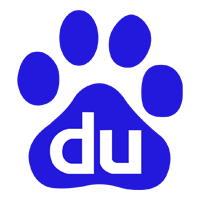
Leading generative AI for technical and non-technical audiences
- Headquarters: Mountain View, California, United States
- Founded: 1998
- Annual revenue: $350 billion
Google, one of the most prominent AI companies, uses its expertise in algorithms to provide AI services through the Google Cloud platform. The Gemini ecosystem offers a comprehensive suite of generative AI tools, including infrastructure, developer tools, and a user-friendly natural language interface. Google also prioritizes responsible AI practices and maintains transparent communication about its ethical AI approach.

IBM
Founder of Watson and watsonx AI solutions
- Headquarters: Armonk, New York, United States
- Founded: 1911
- Annual revenue: $62.8 billion
A top hybrid and multicloud AI company, boosted by its acquisition of Red Hat in 2019, IBM’s deep-pocketed global customer base has the resources to invest heavily in AI. IBM has an extensive AI portfolio, highlighted by the Watson platform, with strengths in conversational AI, machine learning, and automation. The company invests deeply in R&D and has a treasure trove of patents; its AI alliance with MIT will also likely fuel unique advances in the future.

Meta
Embedded AI assistance in social media apps
- Headquarters: Menlo Park, California, United States
- Founded: 2004
- Annual revenue: $164.5 billion
Meta — the parent company of Facebook, Instagram, and other popular social media platforms — has had a slightly slower start on generative AI than some of the other tech giants, but it has nonetheless blazed through to create some of the most ubiquitous and innovative solutions on the market today. Meta’s Llama model integrates AI into daily digital interactions, offering conversational assistance and image generation. By embedding AI into its ecosystem, Meta aims to build more personalized and immersive experiences.

Microsoft
Enterprise leader in AI
- Headquarters: Redmond, Washington, United States
- Founded: 1975
- Annual revenue: $245 billion

As a pioneering force in the AI industry, Microsoft focuses on democratizing AI to enhance productivity and solve societal challenges. This global giant invests heavily in AI infrastructure and supercomputing capabilities to support large-scale AI applications. It has significantly expanded its relationship with OpenAI, the creator of ChatGPT, leading to the development of intelligent AI copilots and other generative AI technologies that are embedded or otherwise integrated with Microsoft’s products. With its existing infrastructure and partnerships, current trajectory, and penchant for innovation, it’s likely that Microsoft will be the leading provider of AI solutions to the enterprise in the long run.
Nvidia
Leading provider of GPUs and other AI infrastructure
- Headquarters: Santa Clara, California, United States
- Founded: 1993
- Annual revenue: $60.9 billion
All roads lead to NVIDIA as AI — especially generative AI and larger models — grows ever more important. At the center of NVIDIA’s strength is the company’s wicked-fast GPUs, which provide the power and speed for compute-intensive AI applications. Additionally, NVIDIA offers a full suite of software solutions, from generative AI to AI training to AI cybersecurity. It also has a network of partnerships with large businesses to develop AI and frequently funds AI startups.

For an in-depth look at how generative AI and advanced hardware are changing security, see the eWeek video: NVIDIA CSO David Reber on AI and Cybersecurity.
Oracle
Leader in cloud-based AI support
- Headquarters: Austin, Texas, United States
- Founded: 1977
- Annual revenue: $53 billion
Oracle’s cloud platform has leaped forward over the past few years — it’s now one of the top cloud vendors — and its cloud strength will be a major conduit for AI services to come. To bulk up its AI credentials, Oracle has partnered with NVIDIA to boost enterprise AI adoption. The company stresses its machine learning and automation offerings and also sells a menu of prebuilt models to enable faster AI deployment. Oracle is also committed to workforce development, planning to train and certify 350,000 professionals in key Middle Eastern countries to support the growing demand for its cloud services. This initiative aims to create a local pool of certified experts who can drive the adoption of Oracle’s advanced technologies.

To find out how a cloud leader is facing the challenges of today’s IT sector, see the eWeek video: Oracle Cloud’s Leo Leung on Cloud Challenges and Solutions.
AI Pioneers
Think of these AI companies as the forward-looking group building the systems that drive AI progress. They take varied approaches — some focus squarely on AI tools, others support the broader ecosystem. While their strategies differ, they’re now central to a larger question: Will the future of AI be shaped by these agile pioneers, or by the massive cloud vendors with the infrastructure and built-in customer base to dominate the space?
Accubits
Leader in blockchain, Web3, and metaverse technologies
- Headquarters: Virginia, USA
- Founded: 2012
- Annual revenue: $6.4 Million
Accubits is a blockchain, Web3, and metaverse tech solutions provider that has expanded its services and projects into artificial intelligence as well. The company primarily works to support other companies in their digital transformation efforts, offering everything from technology consulting to hands-on product and AI development. The company’s main AI services include support for AI product and model development, consulting for generative AI projects, solution architecting, and automation solutions. In late 2024, Response Informatics Limited agreed to purchase a 95% stake in Accubits for approximately $593,000. This acquisition aims to diversify Response Informatics’ revenue streams and enhance its capabilities in the AI and blockchain sectors.

Adobe
AI solutions for graphic designers and creatives
- Headquarters: San Jose, California, United States
- Founded: 1982
- Annual revenue: $21.51 billion
Adobe is a SaaS company that primarily offers marketing and creative tools to its users. The company has begun to enhance all of these products with AI solutions, including Adobe Firefly, a robust generative AI tool and assistant that helps users personalize marketing assets, edit visual assets for better quality, and generally create creative content at scale across different Adobe suite products. In early 2025, Adobe expanded its Firefly offerings with the launch of the Firefly Video Model, which allows users to generate IP-friendly video content from text prompts or images. This model is integrated into the new Firefly app, so users can generate images and videos while ensuring commercial safety for brands and creative professionals.

Altair (RapidMiner)
End-to-end data analytics and AI workflows
- Headquarters: Troy, Michigan, United States
- Founded: 1985
- Annual revenue: $192.6 million
A prime example of a mega theme driving AI, Alteryx’s goal is to make AI models easier to build. Following its acquisition by Clearlake Capital Group and Insight Partners in 2024, Alteryx has focused on enhancing its cloud-native tools and AI-driven insights. The platform enables users to connect data sources to automated modeling tools through a drag-and-drop interface, allowing data professionals to create new models more efficiently. Users grab data from data warehouses, cloud applications, and spreadsheets, all in a visual data environment.

Alteryx
Drag-and-drop approach to data and AI modeling
- Headquarters: Irvine, California, United States
- Founded: 1997
- Annual revenue: $192.6 million
A prime example of a mega theme driving AI, Alteryx’s goal is to make AI models easier to build. The goal is to abstract the complexity and coding involved with deploying artificial intelligence. The platform enables users to connect data sources to automated modeling tools through a drag-and-drop interface, allowing data professionals to create new models more efficiently. Users grab data from data warehouses, cloud applications, and spreadsheets, all in a visualized data environment. Alteryx was founded in 1997.

Learn about the major trend toward enabling wider access to data by watching the eWeek video: Alteryx’s Suresh Vittal on the Democratization of Data Analytics.
Arista Networks
Leader in AI networking solutions
- Headquarters: Santa Clara, California, United States
- Founded: 2004
- Annual revenue: $7 billion
Arista Networks is a longstanding cloud computing and networking company that has quickly advanced its infrastructure and tooling to accommodate high-volume and high-frequency AI traffic. More specifically, the company has worked on its GPU and storage connections and sophisticated network operating software. Arista has partnered with NVIDIA to deliver holistic AI solutions. The collaboration includes the introduction of the Arista EOS AI Agent, which integrates compute and network domains into a single managed entity, aimed at reducing job completion times for AI tasks.

Cloudera
Hybrid, cloud-agnostic data platform
- Headquarters: Santa Clara, California, United States
- Founded: 2008
- Annual revenue: $1 billion
Following its merger with former competitor Hortonworks, Cloudera now delivers the Cloudera Data Platform and Cloudera Machine Learning, providing data professionals with a unified environment for seamless collaboration and AI development.
The ML solutions are specifically designed to perform data prep and predictive reporting. As an example of emerging trends, Cloudera provides portable cloud-native data analytics. Cloudera acquired Verta’s operational AI platform and Octopai’s data lineage and catalog platform, furthering Cloudera’s capabilities in AI and data governance, contributing to a more robust service offering for customers.

For an inside view of where data leader Cloudera is headed, see the eWeek video: Cloudera’s Ram Venkatesh on the Cloudera Roadmap.
C3.ai
Industry-focused AI solutions and services
- Headquarters: Redwood City, California, United States
- Founded: 2009
- Annual revenue: $98.8 million
C3.ai is an AI company created specifically to sell AI solutions to the enterprise. The company offers a long menu of turnkey AI solutions so companies can deploy AI without the complexity of building it themselves. It has strengthened partnerships with Microsoft, AWS, and McKinsey QuantumBlack for deeper product integration, joint marketing, and streamlined access to advanced AI solutions. C2.ai serves clients like the U.S. Air Force, leveraging AI to predict system failures, and Shell, optimizing equipment monitoring across its vast infrastructure.

For a detailed comparison of C3.ai and a major competitor, see our guide: C3.ai vs. DataRobot: Top Cloud AI Platforms.
Databricks
AI-optimized data lakehouses and infrastructure
- Headquarters: San Francisco, California, United States
- Founded: 2013
- Annual revenue: $3 billion
Databricks offers an enterprise data intelligence platform that supports the flexible data processing needed to create successful AI and ML deployments; think of this data solution as the crucial building block of artificial intelligence. Through its innovative data storage and management technology, Databricks ingests and preps data from myriad sources. Its data management and data governance tools work with all major cloud players. The company is best known for its integration of the data warehouse and the data lake into a data lakehouse format. In recent years, Databricks has strengthened its platform through strategic acquisitions, including Prodvana, Tabular, Lilac, and Einblick, which elevate its capabilities in cloud infrastructure, data management, real-time analytics, and collaborative visualizations.

Interested in the relationship between AI and Data? See the eWeek video: Databricks’s Chris D’Agostino on AI and Data Management.
Dataiku
Low-code/no-code AI/ML model development platform
- Headquarters: New York, United States
- Founded: 2013
- Annual revenue: $300 million
Dataiku is a vendor with an AI and machine learning platform that aims to democratize tech by enabling both data and business professionals to create predictive models. Using shareable dashboards and built-in algorithms, Dataiku users can spin up machine learning or deep learning models; most helpfully, it allows users to create models without writing code. Dataiku now serves over 700 organizations globally, including major clients like Johnson & Johnson, Novo Nordisk, Perdue Farms, and Rolls Royce. Its strategic alliance with KPMG enhances offerings through expertise in cloud migration and AI governance.

DataRobot
Cloud-agnostic AI and data solutions
- Headquarters: Boston, Massachusetts, United States
- Founded: 2012
- Annual revenue: $285 million
DataRobot offers a cloud-agnostic AI Cloud that works with all the cloud leaders, including AWS, Azure, and Google. It’s built with a multicloud architecture that offers a single platform accessible to all manner of data professionals. Its value is that it provides data pros with deep AI support to analyze data, which supercharges data analysis and processing. Among its outcomes is faster and more flexible machine learning model creation. In February 2025, DataRobot acquired Agnostiq, enhancing its capabilities in agentic AI application development and compute orchestration through Agnostiq’s open-source platform, Covalent.

For in-depth comparison of DataRobot and a major competitor, read DataRobot vs. H2O.ai: Top Cloud AI Platforms.
Domino Data Lab
Unified AI orchestration solution provider
- Headquarters: London, United Kingdom
- Founded: 2013
- Annual revenue: $61 million
Domino Data Lab offers both comprehensive AIOps and MLOps (machine learning operations) solutions through its platform technology. With its enterprise AI platform, users can easily manage their data, software, apps, APIs, and other infrastructural elements in a unified ecosystem. Users have the option to work with hybrid or multicloud orchestration, and they can also choose between a SaaS or self-managed approach. Domino Data Lab has partnered with NVIDIA to provide a faster development environment, and it has also launched the Statistical Computing Environment (SCE) Coalition to streamline clinical research and accelerate drug approvals through improved data workflows.

To learn how today’s software developers are finding ways to work faster, see the eWeek video: Domino Data Lab’s Jack Parmer on “Code First” Data Science.
H2O.ai
Solutions provider for generative and predictive AI
- Headquarters: Mountain View, California, United States
- Founded: 2012
- Annual revenue: $69.2 million
H2O.ai is a company built from the ground up with the mission of providing AI software to the enterprise, focusing on democratizing AI for companies without major in-house expertise. It specializes in delivering a complete suite of machine learning platforms, including H2O, Driverless AI, and H2O Wave, to streamline adopting and scaling AI solutions for enterprises. Recently, H2O.ai collaborated with Dell Technologies and NVIDIA to deliver a validated generative and predictive AI solution through the Dell AI Factory, while also introducing Agentic AI, which integrates generative and predictive capabilities for more efficient enterprise workflows.
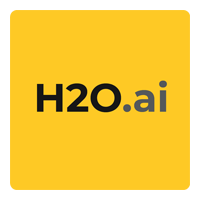
To learn how computers can “see” the world around them, watch our eWeek video: H2O.ai’s Prashant Natarajan on AI and Computer Vision.
Inflection AI
A conversational approach to generative content
- Headquarters: Palo Alto, California, United States
- Founded: 2022
- Annual revenue: $3.8 million
Inflection AI is an AI studio focused on creating advanced applied AI for challenging use cases. The company is primarily known for Pi, a conversational AI designed for personalized casual conversations, accessible via pi.ai and mobile apps. Under CEO Sean White, Inflection AI shifted its focus towards enterprise solutions with Inflection for Enterprise. This platform enables businesses to deploy AI agents and integrate tools like data analytics and workplace communication enhancements. Its acquisitions of BoostKPI and Jelled.ai further strengthened its enterprise offerings, establishing Inflection AI as a leader in business-focused AI innovation.

OpenAI
Founder of ChatGPT
- Headquarters: San Francisco, California, United States
- Founded: 2015
- Annual revenue: $3.5 billion
The world was forever changed when OpenAI introduced ChatGPT in November 2022 — a major milestone in the history of artificial intelligence. Founded in 2015 with $1 billion in seed funding, San Francisco-based OpenAI benefits from a cloud partnership with Microsoft, which has invested a reported $13 billion in OpenAI. Not content to rest on its success, OpenAI has launched GPT-4, a larger multimodal version of its successful LLM foundation model, and continues to innovate in areas like text-to-video generation. The company also offers DALL-E, which creates artistic images from user text prompts.
In 2024, OpenAI acquired Rockset, a real-time analytics database company, to supercharge its data retrieval capabilities. It also acquired Multi, a video calling platform for remote teams, in an acquihire deal.

Scale AI
Leading provider of AI for public sector use cases
- Headquarters: San Francisco, California, United States
- Founded: 2016
- Annual revenue: $687.4 million
Scale is an AI company that covers a lot of ground with its products and solutions, giving users the tools to build, scale, and customize AI models — including generative AI models — for various use cases. The Scale Data Engine simplifies the process of collecting, preparing, and testing data before AI model development and deployment, while the Scale Generative AI Platform and Scale custom LLMs give users the ability to fine-tune generative AI to their specifications. The company secured a landmark contract with the U.S. Department of Defense to integrate AI agents into military decision-making through the Thunderforge program, boosting operational capabilities within military workflows.

Snowflake
Next-gen data warehouse and AI data cloud vendor
- Headquarters: Bozeman, Montana, United States
- Founded: 2012
- Annual revenue: $2.67 billion
Snowflake is a next-gen data warehouse vendor. Artificial intelligence requires oceanic amounts of data, properly prepped, shaped, and processed, and supporting this level of data crunching is one of Snowflake’s strengths. Operating across AWS, Microsoft Azure, and Google Cloud, Snowflake’s AI Data Cloud aims to eliminate data silos for optimized data gathering and processing. Snowflake has expanded its offerings through acquisitions such as Datavolo, a multimodal data pipeline platform, and the remaining stake in Samooha, a provider of data clean rooms. Snowflake also invested in startups to foster innovation within its ecosystem.

For an expert take on how today’s IT platforms are enabling wider data access, see the eWeek video: Snowflake’s Torsten Grabs on AI and Democratizing Data.
AI Visionaries
If the AI pioneers are a mixed bag, this group of AI visionaries is heading off in an even wider array of directions. These AI startups are closer to the edge, building a new vision even as they imagine it — they’re inventing the generative AI landscape in real time, in many cases. More than any technology before, there’s no roadmap for the growth of AI, yet these generative AI companies are proceeding at full speed.
Abacus.ai
AI technology used to build AI technology
- Headquarters: San Francisco, California, United States
- Founded: 2019
- Annual revenue: $90.2 million
Founded in 2019, Abacus creates pipelines between data sources—such as Google Cloud, Azure, and AWS—and then allows users to custom-build and monitor machine learning models. A unique aspect of this platform is that it also enables AI to build AI agents and systems rather than requiring hands-on human intervention. Abacus’s prebuilt AI technology can be used to build AI solutions like LLMs and can provide additional information about these models to improve explainability.

Adept
Commitment to general intelligence AI assistants
- Headquarters: San Francisco, California, United States
- Founded: 2022
- Annual revenue: $11.1 million
Currently, generative AI platforms like DALL-E and GPT-4 create images or text in response to user text prompts. Adept is building the next step: it is creating a full-fledged digital assistant — an AI teammate for everyone — that will execute a series of complex commands based on text prompts, even for developer tasks. As an example of how Adept works, if you type in the prompt, “convert this client into a sales opportunity,” the Adept digital assistant performs various actions to complete the sale. Now focused entirely on agentic AI solutions, Adept aims to automate complex workflows for businesses, emphasizing reliability and usability. Additionally, the company has partnered with Amazon, which licenses its agent technology and multimodal models.

Anthropic
Generative AI leader committed to constitutional AI
- Headquarters: San Francisco, California, United States
- Founded: 2021
- Annual revenue: $1 billion
Founded by former senior members of OpenAI, Anthropic is an AI research and development company that focuses on creating safe and reliable artificial intelligence systems. The company is best known for its generative AI chatbot, Claude 3, which provides detailed written answers to user questions. This latest generation of Claude has introduced aspects of multimodality and improved various components of the platform. Anthropic emphasizes its commitment to Constitutional AI, a methodology designed to ensure consistent safety, transparency, and ethics in its models.

Cohere
Leading models with accessible AI playground
- Headquarters: Toronto, Ontario, Canada
- Founded: 2019
- Annual Revenue: $70 million
Cohere was founded by a group of elite AI experts, many of whom were former researchers at Google Brain. The AI company aims to enable more natural communication between humans and machines for generative AI, search, discovery, and retrieval tasks. Cohere builds large language models for enterprise customers, accessible via an API, which is clearly a lucrative new niche. Its top models are the Command, Rerank, and Embed models. Cohere has formed a strategic partnership with Fujitsu to develop enterprise AI solutions and secured federal support to build a multibillion-dollar AI data center in Canada.

Eightfold AI
AI solution for recruiters and talent management
- Headquarters: Mountain View, California, United States
- Founded: 2016
- Annual Revenue: $90.6 million
Eightfold AI is a vendor that uses AI-powered technology to make recruitment, onboarding, retention, and other organizational talent management tasks easier to manage at scale. Users can work with the vendor’s all-encompassing Talent Intelligence Platform, which includes features not only for talent acquisition and talent management but also for resource management. Its automations and smart analytics help users comb through larger quantities of applicants at a quicker pace while ensuring they identify top talent and new talent pipelines with minimal bias. Eightfold AI has partnered with various public sector entities, including the U.S. Department of Defense, the State of New York, Puerto Rico, and Washington D.C., enhancing their hiring and talent management capabilities to strengthen mission readiness.

FarmWise
AI-powered farming technology innovator
- Headquarters: Santa Clara, California, United States
- Founded: 2016
- Annual Revenue: $35.3 million
FarmWise is an agricultural technology company specializing in AI-powered precision weeding solutions. With advanced computer vision and machine learning, FarmWise enables plant-level farming by identifying and removing weeds with sub-inch accuracy, reducing the need for chemical herbicides. Its flagship product, the Vulcan precision weeding implement, has been deployed across thousands of acres to improve farming efficiency and sustainability. In 2024, FarmWise expanded its reach through an exclusive partnership with RDO Equipment Co., enhancing support for its technology among vegetable growers in the U.S. Southwest. This collaboration underscores FarmWise’s mission to revolutionize agriculture by combining cutting-edge AI with practical farming applications.

Glean
Leader in generative enterprise search technology
- Headquarters: Palo Alto, California, United States
- Founded: 2019
- Annual Revenue: $100 million
Considered one of the unicorns of the emerging generative AI scene, Glean has evolved into a prominent player in enterprise AI by expanding beyond search to offer comprehensive workplace solutions. With its Work AI platform, including features like Workplace Search, Assistant, Knowledge Management, Work Hub, and Connectors, Glean enables businesses to create self-service tools for employees to access critical information across applications. Recent advancements include the launch of the Glean Agents platform, which allows no-code creation of AI agents for automating complex workflows across departments. Glean is expanding globally into markets like Japan and Europe while targeting new verticals such as healthcare and manufacturing.

Gong
AI-powered revenue, service, and sales intelligence
- Headquarters: San Francisco, California, United States
- Founded: 2015
- Annual revenue: $300 million
Gong is a fast-growing provider of customer service, sales, and marketing solutions that focus on revenue and engagement intelligence and analytics. AI is infused throughout the platform and is used to provide contextual information and recommendations for customer interactions, as well as coaching for internal team members. The vendor also offers its smart trackers tool, which gives users the ability to train Gong’s AI to more granularly detect certain types of customer interactions and red-flag behaviors.

Insitro
Multidisciplinary, AI-powered approach to drug discovery
- Headquarters: San Francisco, California, United States
- Founded: 2018
- Annual revenue: $69 million
Founded by a former professor of machine learning at Stanford, Insitro’s goal is to improve the drug discovery process using AI to analyze patterns in human biology. Drug discovery is enormously expensive and typically met with low success rates, so AI’s assistance is greatly needed. Driving this development is the company’s mixed team of experts, including data scientists, bioengineers, and drug researchers. In 2024, Insitro partnered with Eli Lilly to advance treatments for metabolic diseases, combining its AI-driven platform with Lilly’s expertise in drug delivery and metabolic biology.

InVideo
Customizable AI videos for social media
- Headquarters: San Francisco, California, United States
- Founded: 2017
- Annual revenue: $18.1 million
InVideo is an AI video company that focuses on automating script, scene, voiceover, and overall video production. The platform is frequently used for digital marketing and content marketing projects, allowing users to transform blogs and other text prompts into YouTube, talking avatar, Instagram, and other types of engaging video content. Users can customize the AI-generated content from the platform by inputting target audience, platform, and other tailored instructions.

Ironclad
AI for contract lifecycle management
- Headquarters: San Francisco, California, United States
- Founded: 2014
- Annual Revenue: $139.9 million
Ironclad is a contract lifecycle management vendor that uses AI to manage contract data, contract creation, analytics, and more. Its contract review process is thorough and customizable, offering users AI-driven suggestions for how to improve existing contracts based on both best practices and the AI playbooks users upload themselves; the platform also includes a comprehensive AI-powered editor and a repository that makes contracts editable in a Word Document-like format. Ironclad acquired PactSafe, a leader in clickwrap technology, expanding its capabilities in managing digital agreements. More recently, the vendor has come out with Ironclad Contract AI, an AI assistant that supports users with chat-driven solutions for additional contract tasks and queries.

JLL
AI for intelligent real estate insights
- Headquarters: Chicago, Illinois, United States
- Founded: 1999
- Annual revenue: $23.4 billion
JLL exemplifies the integration of AI in commercial real estate by developing proprietary solutions like JLL Falcon and JLL GPT to enhance transaction efficiency and client decision-making. JLL Falcon is an AI platform that combines the company’s extensive proprietary data with generative AI models to deliver timely, revenue-generating, and cost-saving insights for investors, occupiers, and real estate professionals. JLL GPT, introduced in August 2023, is the first large language model specifically designed for the commercial real estate industry, enabling JLL’s workforce to provide specialized insights to clients.

Moveworks
AI for IT and support workflows
- Headquarters: Mountain View, California, United States
- Founded: 2016
- Annual Revenue: $100 million
Acquired by ServiceNow in 2025, Moveworks is an AI company that focuses on creating generative AI and automated solutions for business operations, employee, and IT support. The platform is filled with AI-powered features, including AI workflows, analytics, knowledge management, and ticket and task automation. The company is also leading the way with copilot assistive AI technology, giving users access to tools like MoveLM, an LLM that’s dedicated to employee support queries and tasks.

Openstream.ai
Highly configurable conversational AI
- Headquarters: Bridgewater, New Jersey, United States
- Founded: 1998
- Annual revenue: $13 million
Openstream.ai is a player in the rapidly growing conversational AI market. Openstream.ai’s Eva platform leverages sophisticated knowledge graphs that use both structured and unstructured data, enabling it to work across multiple channels, including social media platforms. Openstream.ai uses this AI architecture to power natural language understanding (NLU), which involves impressive levels of reading comprehension. The vendor also develops copilots, help desks and contact center agents, and other customer service solutions with its conversational AI approach.

Runway
Text-to-video and video-to-video content generation platform
- Headquarters: New York, United States
- Founded: 2018
- Annual Revenue: $18.3 million
The three founders of Runway met in art school, where they were immersed in digital design software. Their solution — a browser-based generative AI platform that requires no plugins — creates images and videos from text prompts. Think of it as a filmmaker’s dream: If you can imagine it, the Runway platform will help you create it. Runway already has a major production credit for the film “Everything Everywhere All At Once,” which won Best Picture in the 2023 Academy Awards. Recently, Runway partnered with Lionsgate to develop a custom AI model trained on Lionsgate’s extensive film library, aiming to enhance the filmmaking process with cutting-edge, cost-efficient content creation tools. Its most recent models and developments have earned high praise for their realism and controllability.

Samsara
AI-powered driving assistance and analytics
- Headquarters: San Francisco, California, United States
- Founded: 2015
- Annual revenue: $1.1 billion
Samsara is an IoT company that has brought forth several innovative technologies over the years, but more recently, it has expanded into AI for driver and road safety. The company’s built-in AI and advanced edge computing for vehicles give drivers and/or fleet managers real-time insights into road conditions and driving performance, as well as coaching workflows and in-cab driver assistance. AI dash cams are built into vehicles and designed to send footage directly to the cloud, so fleet managers and business owners can review driver and vehicle issues in a timely manner.

Synthesia
Generative AI video platform with AI avatars
- Headquarters: London, United Kingdom
- Founded: 2017
- Annual revenue: $73.5 million
Is the person in this video real or virtual? Synthesia uses AI to create video avatars who speak and present as if they’re human. The AI company offers more than 230 stock AI avatars to allow users to create a virtual talking head using text prompts. To add realism, the avatars can be customized with facial gestures like raised eyebrows, head nods, and support for over 140 languages. Additionally, users can create personal avatars that look and sound like themselves, further enhancing the realism and customization options available with Synthesia’s technology.

To learn about the future of video and AI, see the eWeek video: Synthesia CEO Victor Riparbelli on AI and Video Avatars.
Synthesis AI
AI for multiple computer vision scenarios
- Headquarters: San Francisco, California, United States
- Founded: 2019
- Annual revenue: $4 million
Synthesis AI is a generative AI and synthetic data company that focuses on creating data and models for computer vision use cases. The platform can be used for a variety of use cases spanning across industries, including AR/VR/XR, virtual try-on, teleconferencing, driver and pedestrian monitoring, and security. It can also be used in biometrics and security, specifically for ID verification and threat detection.

Generative AI companies
Generative AI (genAI) creates content from text prompts, producing everything from essays and graphics to software code. GenAI’s benefits are impressive, but its risks are serious — it can introduce cybersecurity issues or generate false, even harmful, information. Still, adoption is booming, and new AI startups are emerging constantly. At the same time, the sector faces heated debate over copyright and ownership, since these models are trained on existing creative work. The legal and ethical issues remain unsettled, though ongoing regulation may begin to bring clarity.
Biomatter
Generative AI for new protein creation
- Headquarters: Vilnius, Lithuania
- Founded: 2018
- Annual revenue: $2.2 million
Biomatter employs generative AI to create synthetic biologic materials, specifically new proteins for health and sustainable manufacturing applications. This technology for creating synthetic proteins means new enzymes can be created with completely novel properties and use cases. Clearly, this is just one of many examples of how generative AI will play a crucial role in the future of medicine.

Hugging Face
Extensive AI modeling community and resource library
- Headquarters: Manhattan, New York, United States
- Founded: 2016
- Annual revenue: $50 million
Hugging Face, originally known for developing a chatbot for teens, has transformed into a leading repository for prebuilt machine learning and AI models across various vendors and use cases. As a significant player in the generative AI sector, thousands of companies utilize its platform to create AI-based applications. Recently, Hugging Face has expanded its capabilities through strategic acquisitions, including the purchase of Argilla for $10 million, enhancing its data annotation capabilities, and XetHub, a collaboration platform for large-scale AI model development. These acquisitions underscore Hugging Face’s commitment to consolidating expertise and resources in the AI industry.

Jasper
Generative AI platform for marketing content creation
- Headquarters: San Francisco, California, United States
- Founded: 2021
- Annual revenue: $21 million
Similar to ChatGPT, though with a marketing focus, Jasper uses generative AI to churn out text and images to assist companies with brand-building content creation. The AI solution learns to create in the company’s voice, no matter how mild or spiky, for brand consistency. Jasper has recently expanded its capabilities through the acquisition of Clipdrop and has joined the World Economic Forum’s Unicorn Community.

Lemon Slice (Infinity AI)
Synthetic-data-as-a-service provider
- Headquarters: San Francisco, California, United States
- Founded: 2021
- Annual revenue: $48,000
Lemon Slice, formerly Infinity AI, is a cutting-edge technology company that has evolved from focusing on synthetic data to developing a video foundation model. This model enables creators to generate expressive, talking characters, enhancing digital content creation. Recent updates include the release of Lemon Slice 2.5, which offers improved stability, enhanced singing capabilities, and whole-body animations. Lemon Slice has collaborated with Sonaut AI, an AI music company,to allow users to generate custom songs and animate them directly within the Lemon Slice Studio. This shift highlights the company’s expansion into more creative and interactive AI applications.

Midjourney
AI-powered image generation and editing solutions
- Headquarters: San Francisco, California, United States
- Founded: 2022
- Annual revenue: $200 million
A generative AI service that creates images from natural language text prompts, Midjourney is one of the most popular generative AI platforms. It has already been used to generate surprisingly high-profile art: For example, the English publication The Economist has used Midjourney to create its cover image, and a Midjourney image scored top honors in a digital art contest hosted by the Colorado State Fair. Midjourney has expanded into the hardware space, establishing a new team to develop innovative hardware solutions that may complement its AI projects, potentially focusing on immersive technologies like mixed reality.

MOSTLY AI
Synthetic data generation for finance sector
- Headquarters: Vienna, Austria
- Founded: 2017
- Annual revenue: $7.8 million
Focusing on synthetic data generation, MOSTLY AI touts that the synthetic data it creates with generative AI appears as authentic as actual consumer data. The advantage is that this data doesn’t contain the original private data, so it’s compliant with privacy and data governance standards. The company works across a range of industries, including banking and insurance.

Notion
Embedded AI assistance in project management platform
- Headquarters: San Francisco, California, United States
- Founded: 2013
- Annual revenue: $67.2 million
Notion is a company that offers a project management platform with groundbreaking AI assistance tools for project management professionals. Its latest collection of AI features, Notion AI, is available directly inside of the Notion platform for users who want to intelligently optimize and automate their project workflows. Notion’s AI assistance can be used for task automation, note and doc summaries, action item generation, and content editing and drafting. In 2024, Notion acquired Skiff, a privacy-focused productivity platform, to enhance its suite with secure, end-to-end encrypted services, further expanding its capabilities in the productivity software market.

Osmo
AI-powered sense of smell for computers
- Headquarters: New York, United States
- Founded: 2023
- Annual revenue: Undisclosed
Computers are advancing towards having a sense of smell as Osmo continues to digitize and analyze scents, aiming to improve healthcare and consumer products. The company is creating a vast map of scents, known as a Principal Odor Map, amidst billions of scent-carrying molecules, with only about 100 million currently known. Osmo utilizes Google Cloud’s AI platform for its generative AI work. Osmo launched Generation in 2025, the world’s first AI-powered fragrance house, which introduces new fragrance ingredients like Glossine, Fractaline, and Quasarine. Additionally, Osmo is expanding into authentication services using AI-powered scent sensors. The company has also collaborated with the Museum of Pop Culture to create a bespoke fragrance, bringing together pop culture and fragrance in a unique way.

PlayHT
AI voice generator and text-to-speech
- Headquarters: San Francisco, California, United States
- Founded: 2016
- Annual revenue: $5 million
PlayHT specializes in text-to-speech (TTS) technology, offering over 900 AI voices across multiple languages. It has developed a suite of products, including Text to Speech Synthesis, Text to Speech API, AI Voice Agents, and Voice Studio. This AI company supports expressive speech styles such as conversational, cheerful, empathetic, and newscaster tones, enhancing the natural quality of its voices. Additionally, PlayHT uses advanced emotional intelligence and real-time adaptation capabilities to produce nuanced and context-aware audio content. Its innovations also include voice cloning and multilingual support, making it a versatile tool for e-learning, publishing, marketing, and customer service industries.

Tabnine
Generative AI coding assistant
- Headquarters: Tel Aviv, Israel
- Founded: 2013
- Annual revenue: $8.3 million
Tabnine is an AI company that focuses on providing AI assistance for coding and product development. The tool is designed to automate and complete code wherever possible, provide coding suggestions, and do all of this work while also ensuring that all code and data remains secure and compliant. The company acquired CastorDoc in 2024 to enhance its AI-driven capabilities. It also expanded platform partnerships with AWS, Google Cloud, and Oracle Cloud Infrastructure to facilitate flexible deployment options across various infrastructures.

Stability AI
Multimodal open AI model developer
- Headquarters: London, United Kingdom
- Founded: 2019
- Annual revenue: Projected to be around $33.3 million
Stability AI is the generative AI company behind Stable Diffusion, an AI model in multiple generations that generates images in response to user text prompts. Since its initial venture into AI image generation, the company has expanded into video, audio, 3D, and language models. Stability AI offers specialized applications such as Stable Assistant, a chatbot for text-to-image generation; Stable Artisan, a generative AI bot on Discord for multimodal content generation; and Stable Audio, a music and audio generation solution. The company has formed strategic partnerships, notably with WPP, and has shifted towards API licensing and enterprise solutions. Additionally, James Cameron has joined the board, contributing to the company’s strategic direction.

Syntho
Synthetic data generation for digital twins
- Headquarters: Amsterdam, Netherlands
- Founded: 2020
- Annual revenue: $1.26 million
Syntho’s Syntho Engine uses generative AI to create synthetic data, offering a self-service platform that also supports smart de-identification and test data management use cases. The company creates data to build digital twins that respect privacy and GDPR regulations. Its goal is to enable the open data economy, allowing data to be shared more widely while protecting sensitive consumer data.

You.com
User-friendly, customizable search solution
- Headquarters: Palo Alto, California, United States
- Founded: 2020
- Annual revenue: Undisclosed
Should Google be concerned about competition in internet search? If so, the generative AI-driven platform You.com may be a rising contender to watch out for.
Type a query into You.com, and the ChatGPT-style website will create content based on your request. Most recently, a mobile version of the tool was released to the general public.

AI Enterprise Majors
Major enterprise tech vendors that once focused on legacy hardware and software are now moving into AI, using their resources and expertise to build or acquire AI solutions. Many began investing in AI well before the ChatGPT boom, and while their tools may not grab headlines like DALL·E, they’re quietly transforming traditional systems into automated, AI-driven platforms.
BMC Software
Automated AI-driven service management (AISM)
- Headquarters: Houston, Texas, United States
- Founded: 1980
- Annual revenue: $2 billion
BMC Software, Inc. is an IT services and enterprise software company focused on automation, service management, DevOps, workflow orchestration, AIOps, and security. It supports enterprises using mainframes with its Automated Mainframe Intelligence (AMI) product line, enabling self-managing mainframe systems through AI and machine learning. BMC has expanded its capabilities through strategic acquisitions and announced plans to create two independent companies — BMC and BMC Helix — focusing on infrastructure management and AI-driven digital service management, respectively. This aims to enhance specialization and customer value in each area.

Learn how a major industry expert sees the DataOps sector by watching the eWeek video: BMC CEO Ayman Sayed on DataOps and the Autonomous Digital Enterprise.
Broadcom
Enterprise security innovator with growing AI footprint
- Headquarters: San Jose, California, United States
- Founded: 1991
- Annual revenue: $51.6 billion
Broadcom supplies both semiconductors and enterprise infrastructure software, serving markets from data centers to wireless, and making significant strides in the multicloud sector. Following its $69 billion acquisition of VMware in late 2023, Broadcom has bolstered its enterprise software offerings and expanded its cloud computing capabilities. The company fuels the AI market on multiple levels, notably in its generative AI business, which is poised to quadruple. In 2024, Broadcom became an investor favorite among AI stocks to watch and buy, driven by its strategic positioning and growth prospects in AI and cloud technologies.

Multicloud is highly functional but quite challenging; for tips on making it work, see the eWeek video: Broadcom’s Ganesh Janakiraman on Multicloud Challenges.
Dell Technologies
Services and infrastructure provider for AI technology
- Headquarters: Round Rock, Texas, United States
- Founded: 1984
- Annual revenue: $88.425 billion
Dell’s APEX solution offers multicloud management and a SaaS-based IT services panel, so companies can build AI-based tools such as fraud detection, natural language processing, and recommendation engines. Through APEX, customers can access generative AI solutions and AIOps solutions for multicloud management. Dell emphasizes the AI support provided by its hardware, including PowerEdge servers and PowerScale Storage. The APEX portfolio has expanded to include cloud platforms, public cloud storage software, client devices, and compute, spanning on-premises, cloud, and edge environments.

For a closer look at how multicloud is evolving, see the eWeek video: Dell APEX’s Chad Dunn on Handling Multicloud Challenges.
HPE
Rapid AI deployment and enterprise scalability provider
- Headquarters: Spring, Texas, United States
- Founded: 2015
- Annual revenue: $30.1 billion
Hewlett Packard Enterprise (HPE) is a renowned AI company that uses its hybrid cloud capabilities and strategic partnerships to accelerate AI adoption. HPE’s collaboration with NVIDIA enhances AI performance, security, and efficiency, supporting comprehensive solutions across industries. HPE’s Private Cloud AI and GreenLake platforms integrate with NVIDIA’s AI Data Platform, providing a unified data layer that streamlines AI data lifecycles and enables enterprises to run AI at scale across hybrid cloud environments.

To find out how today’s IT leaders are navigating rapid change, see the eWeek video: HPE Greenlake SVP Keith White on Change in the IT Sector.
Informatica
Unified metadata intelligence through CLAIRE
- Headquarters: Redwood City, California, United States
- Founded: 1993
- Annual revenue: $1.73 billion
Informatica is an AI company that specializes in enterprise cloud data management, using its CLAIRE AI Engine to automate and scale data management tasks across multi-cloud and hybrid systems. The company’s Intelligent Data Management Cloud (IDMC) platform connects, manages, and unifies data, supporting data governance, quality, and analytics to drive digital transformation. Informatica empowers businesses to harness the power of AI by providing trusted, governed data, enabling them to realize the full potential of their data assets.

Infosys
Leader in intelligent, AI-powered automation and RPA
- Headquarters: Bengaluru, India
- Founded: 1981
- Annual revenue: $19.11 billion
Infosys touts its AI and Automation Services teams as an enterprise-ready solution to provide AI and automation consulting, create bespoke AI platforms, and offer prebuilt cognitive modeling solutions. These solutions include robotic process automation (RPA) tools and AI chatbot models. The company is considered a leader in intelligent automation. Infosys has strengthened its capabilities by acquiring InSemi for semiconductor design services and In-Tech for engineering R&D in the automotive sector. This AI company expanded its collaboration with Citizens Financial Group to employ AI and cloud technologies in financial services.
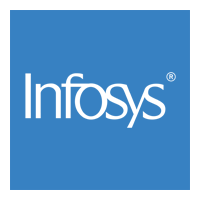
The tech market is facing plenty of challenges; for an expert view, see the eWeek video: Infosys Consulting CEO Andrew Duncan on Tech Headwinds.
Rockwell Automation
Democratized AI industrial automation
- Headquarters: Milwaukee, Wisconsin, United States
- Founded: 1903
- Annual revenue: $8.264 billion
Rockwell Automation is a top provider of large-scale industrial automation solutions, focusing on edge computing deployments. Its FactoryTalk Analytics LogixAI solution enables non-technical staff to access machine learning tools. In 2023, Rockwell acquired Clearpath Robotics and OTTO Motors for autonomous mobile robots. It also acquired Knowledge Lens for AI and IIoT solutions, and Verve Industrial Protection for industrial cybersecurity.

Salesforce
Einstein AI for CRM users
- Headquarters: San Francisco, California, United States
- Founded: 1999
- Annual revenue: $37.9 billion
Not long after OpenAI launched ChatGPT, Salesforce introduced Einstein GPT, the world’s first generative AI platform for CRM, powered by OpenAI. This platform creates personalized content across every Salesforce cloud, offering AI-driven functionalities for service, sales, marketing, and e-commerce. In a significant strategic move, Salesforce acquired Own Company, a leading data protection and management solutions provider, for $1.9 billion in cash.
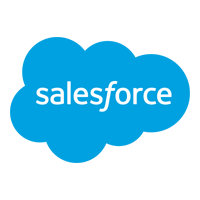
To learn about the future of conversational AI, see the eWeek video: Salesforce Chief Scientist Silvio Savarese on Conversational AI.
SAP
Enterprise-ready, compliant AI applications
- Headquarters: Walldorf, Baden-Württemberg, Germany
- Founded: 1972
- Annual revenue: $35 billion
The ultimate legacy software player, known for its strength in ERP, SAP has clearly moved into the AI era. Its menu of enterprise AI solutions ranges from an AI chatbot to a platform that helps companies incorporate AI into enterprise applications. For its offering of pre-trained AI models, SAP stresses compliance and transparency, which is particularly important for large enterprise clients. SAP has acquired WalkMe, a digital adoption platform provider, which enhances user productivity and streamlines technology deployments. This acquisition complements SAP’s existing solutions like Signavio and LeanIX, further supporting business transformation initiatives by improving user adoption and workflow efficiency.
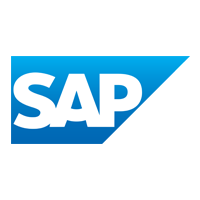
For insight on how companies are sharing analytics more widely, see the eWeek video: SAP’s Irfan Khan on ‘Analytics Everywhere’.
SAS
AI with strong analytics and BI components
- Headquarters: Cary, North Carolina, United States
- Founded: 1976
- Annual revenue: $3.2 billion
A leader in data analytics and business intelligence, SAS’s AI menu extends from machine learning to computer vision to NLP to forecasting. Notable tools include data mining and predictive analytics with embedded AI, which boosts analytics flexibility and scope and allows an analytics program to learn and become more responsive over time. In 2024, SAS acquired Hazy’s synthetic data technology, enabling customers to generate synthetic data more effectively and securely, enhancing their AI applications.

For more details on how data can guide decision making, see the eWeek video: SAS’s Katy Salamati on Data and Intelligent Decisioning.
ServiceNow
AI-powered IT service management solutions
- Headquarters: Santa Clara, California, United States
- Founded: 2004
- Annual revenue: $10.976 billion
ServiceNow is an established enterprise in IT service management (ITSM) delivering AI solutions that democratize technology. Its predictive analytics platform allows users to deploy AI tools without extensive data science expertise, making it accessible to non-technical staff. ServiceNow provides natural language processing (NLP) tools, machine learning models, and AI-powered search and automation. The company acquired Moveworks in 2025, upgrading its enterprise search and CRM functionalities to optimize business operations.

For an expert view on how companies are using the cloud, see the eWeek video: ServiceNow’s Matt Schvimmer on Accelerating Cloud Migration.
AI Robotic Process Automation Companies
Robotics and AI automation have been around long before AI became a mainstream business tool. Early robotics, like those in auto factories, were limited to repeating simple tasks. Today, robotic process automation (RPA) uses AI to handle more complex, routine office work — like gathering files for reports — so employees can focus on higher-value tasks. While larger tech firms such as SAP, ServiceNow, and IBM include RPA in their offerings, the RPA companies in this category focus specifically on building smart automation and RPA solutions that drive productivity.
Anduril
Autonomous vehicles for threat defense
- Headquarters: Costa Mesa, California, United States
- Founded: 2017
- Annual revenue: $1 billion
Anduril is a prominent U.S. defense technology company that creates autonomous AI solutions and other autonomous systems powered by Lattice, its open software platform The tools monitor and mitigate threats on drones and aircrafts, at sea, and on land. Its most impressive autonomous systems include underwater vehicles and air vehicles for managed threat defense. Anduril purchased Numerica’s radar and command and control businesses in January 2025, boosting its air and missile defense capabilities. Additionally, Anduril is expanding into space technology, planning to launch its own spacecraft by late 2025, diversifying its portfolio of autonomous systems across multiple domains.

Automation Anywhere
Democratized approach to enterprise RPA
- Headquarters: San Jose, California, United States
- Founded: 2003
- Annual revenue: Undisclosed
As a player in the all-important cloud native ecosystem, Automation Anywhere offers its Automation Co-Pilot for Business Users to democratize automation. It does this by enabling non-technical staffers to create workflow automations. In 2021, the company acquired process intelligence vendor FortressIQ to expand its tool sets, which should benefit Automation Anywhere as the RPA market evolves toward more sophisticated automation.

Learn about the rapid evolution in the automation sector by watching the eWeek video: Automation Anywhere CEO Mihir Shukla on Intelligent Automation.
EdgeVerve
AI and RPA-powered digital transformation across industries
- Headquarters: Bangalore, Karnataka, India
- Founded: 2014
- Annual revenue: Undisclosed
EdgeVerve brings a growing menu of pre-fabricated automations to speed up workflows in the most important and commonly needed business areas. Products include Finacle Treasury for banking and TradeEdge for supply chain management. Like the rest of the RPA sector, EdgeVerve is evolving its automation capabilities to support digital transformation; in essence, we’re heading toward a world where the office runs itself. EdgeVerve was established as a wholly-owned subsidiary of Infosys in 2014, and it continues to operate with a focus on AI, automation, and analytics, maintaining a separate sales force and structure distinct from Infosys’ core services business.

NICE
RPA for intelligent call center and customer interactions
- Headquarters: Hoboken, New Jersey, United States
- Founded: 1986
- Annual revenue: $2.735 billion
A strong contender in the call center market, NICE’s RPA solutions are geared toward an array of customer-facing support functions. Significantly, its toolset includes speech and sentiment analysis, which is critical to the retail environment because it can effectively understand the emotions of callers. This type of sentiment analysis is a particularly hot area in the AI market.

Nuro
AI-powered autonomous vehicles
- Headquarters: Mountain View, California, United States
- Founded: 2016
- Annual revenue: $5.9 million
Nuro, originally focused on autonomous, driverless vehicles for goods delivery, has shifted its business model to license its AI-driven Nuro Driver™ platform to automotive OEMs and mobility providers, enabling up to Level 4 autonomy in passenger and delivery vehicles. This strategic move leverages Nuro’s proven technology, which has completed over one million autonomous miles without at-fault incidents, to accelerate the adoption of autonomous technology across the transportation industry. The company continues to partner with major retailers and transport companies, including Walmart, FedEx, Kroger, and Uber Eats.

Pega
RPA that predicts customer activity proactively
- Headquarters: Cambridge, Massachusetts, United States
- Founded: 1983
- Annual revenue: $1.5 billion
As businesses seek to grow toward a more fully automated environment, Pega’s RPA architecture has kept pace, adopting a strategy that uses real-time data to guide automated customer interactions. The company touts its ability to read customer intentions, from potential purchases to imminent cancellations, before a customer acts. Overall, the company’s strategy is geared toward greater scalability to support increasingly all-encompassing automation.

For a complete overview of the RPA landscape, see our guide: Robotic Process Automation Vendors.
Shield AI
AI pilot technology innovator
- Headquarters: San Diego, California, United States
- Founded: 2015
- Annual revenue: $163 million
Shield AI is an innovative AI startup that has quickly gained recognition and capital for its AI pilot technology. Hivemind is an AI pilot that can fly aircraft in both commercial and battle settings, providing users with greater insights into their locations and travel paths, as well as awareness of other pilots and aircraft in their fleet. Currently, Shield AI’s technology powers several of the company’s intelligent aircraft, including jets, V-BAT teams, and Nova 2. In April 2024, Shield AI announced its intention to acquire Sentient Vision Systems, an Australian company specializing in AI-enabled real-time situational awareness, aiming to expand into the Australian market.

SS&C Blue Prism
RPA for ML decisioning and process orchestration
- Headquarters: Warrington, England, United Kingdom
- Founded: 2001
- Annual revenue: $5.89 billion
Acquired by financial services software vendor SS&C in 2022, Blue Prism appears to have enlarged its strategy from RPA to overall business automation. This is very much in keeping with the industry shift toward more all-encompassing automation: As AI gets smarter, RPA systems are better able to keep up with these innovations and provide true value in automation. Included in the Blue Prism offering are tools that perform ML decisioning and process orchestration.

UiPath
Leader in the RPA market
- Headquarters: New York, United States
- Founded: 2005
- Annual revenue: $1.308 billion
A renowned leader in the RPA space, UiPath offers a broad suite of business automation tools across API integration, intelligent text processing, and low-code app development. The company’s Marketplace platform offers an extensive menu of prebuilt automations, such as extracting data from a document to automations built for Microsoft Office 365. In 2025, UiPath acquired Peak AI, adding industry-specific decision intelligence capabilities to its platform.

WorkFusion
RPA for digital staffer development
- Headquarters: New York, United States
- Founded: 2010
- Annual revenue: $84 million
RPA software platforms frequently work to create digital workers, otherwise known as AI-powered software robots. WorkFusion builds on this basic truth with a platform that includes six digital staffer personas. Each category of virtual worker is geared for the most common and/or important automation scenario. WorkFusion has a strong presence in the financial sector. In 2024, the company partnered with Advanced Financial Solutions to expand adoption of its AI agents in the Middle East.

Conversational AI Companies
Some users don’t want to click through menus — they want to talk to their software. Conversational AI makes that possible by using natural language processing (NLP), a branch of AI that translates human speech into computer commands. One major benefit: it makes AI accessible to non-technical users, removing the need for coding expertise and opening the door for broader adoption across teams.
Avaamo
Generative AI agents for patient experience and CX
- Headquarters: Los Altos, California, United States
- Founded: 2014
- Annual revenue: $42 million
Avaamo is an AI company evolving from its roots in healthcare-focused conversational AI to delivering an autonomous AI workforce for enterprise productivity. Its flagship offering, Avaamo Agents, are AI-powered digital workers that operate independently to support operations across healthcare, employee services, and customer engagement — with multilingual capabilities and task execution. Through strategic partnerships, especially in healthcare, Avaamo enhances patient experiences and streamlines services.

boost.ai
Conversational AI company with hybrid NLU tech
- Headquarters: Sandnes, Norway
- Founded: 2016
- Annual revenue: $16.24 million
boost.ai offers a full menu of advanced chatbot orchestration tools to speed deployment. To help call center reps boost performance with customer calls, boost.ai provides agents with a large repository of support data. boost.ai has established significant partnerships with leading companies, including collaborations with Sage to elevate customer support and Strategic Income Solutions to improve member engagement for credit unions.

Cognigy
AI-powered conversation agent coaching and optimization
- Headquarters: Düsseldorf, North Rhine-Westphalia, Germany
- Founded: 2016
- Annual revenue: Undisclosed
A core offering of conversational AI vendors is tools that improve the performance of call center agents (or other voice-based customer reps). To serve this market, Cognigy offers Cognigy Agent Assist. The company also offers analytics tools and a low-code platform to enable users to create new bot assistants as needed for their situation.

Gridspace
Generative AI for customer-focused virtual agents
- Headquarters: Los Angeles, California, United States
- Founded: 2012
- Annual revenue: $5 million
Gridspace specializes in conversational AI and virtual call center software. It offers AI-powered virtual agents for quality assurance, revenue management, lead generation, and customer self-service. Gridspace’s platform integrates speech recognition and NLP to transform conversational interactions into structured business data, improving customer service and operational efficiency. The company has secured funding from investors including Wells Fargo and Mouro Capital.

Kore.ai
DIY AI chatbots and virtual assistants
- Headquarters: Orlando, Florida, United States
- Founded: 2013
- Annual revenue: $206.4 million
Kore.ai developed a no-code platform that enables non-technical staff to design, build, test, and deploy versatile virtual assistants across multiple channels, including web, mobile, voice assistants, and messaging platforms. This build-it-yourself approach aligns with the prevailing trend in the AI chatbot sector, so organizations can create customized solutions tailored to their specific needs. Kore.ai’s platform is distinguished by its advancedNLP capabilities, which combine Fundamental Meaning, Machine Learning, and Knowledge Graph engines to accurately interpret user intents and facilitate seamless, human-like interactions.

OneReach.ai
Creator of Intelligent Digital Workers
- Headquarters: Denver, Colorado, United States
- Founded: 2013
- Annual revenue: $7.6 million
OneReach.ai is aligning with a key trend in the conversational AI market, evolving its focus from traditional call center applications to enterprise-wide AI-powered virtual staff. This shift reflects a broader convergence between the conversational AI and RPA sectors, as companies increasingly develop full-fledged digital team members. OneReach.ai has found continued success with its comprehensive conversational agents, known as Intelligent Digital Workers.

SoundHound AI
Conversational AI and knowledge bases powered by NLU
- Headquarters: Santa Clara, California, United States
- Founded: 2005
- Annual revenue: $85 million
SoundHound AI’s voice assistants use advanced speech recognition and NLU to accurately interpret complex voice commands, enabling businesses to deliver personalized customer experiences with precise responses. SoundHound has evolved from its roots in voice recognition to conversational AI, enhanced by strategic partnerships like integrating Perplexity’s search capabilities and acquiring Amelia’s AI-driven customer service solutions.

Yellow.ai
Accessible prebuilt and third-party conversational models
- Headquarters: San Mateo, California, United States
- Founded: 2016
- Annual revenue: $45 million
With an intuitive user interface, Yellow.ai’s product offering includes user-friendly prefabricated models to deploy conversational AI agents; this approach to models is quite strategic, as ease of use is a top priority in the conversational AI market. To help integrate third-party functionality, Yellow.ai has built a marketplace where customers can select third-party tools for specific tasks.

Healthcare AI Companies
Healthcare AI companies are incentivized by two major advantages. First, AI and generative AI expand what medical professionals can do—and in healthcare, better tools are often a matter of life and death. Second, AI reduces bureaucracy, a massive part of the industry, saving both time and money. Healthcare may not grab headlines, but it’s set to be a powerful driver of AI’s progress.
Activ Surgical
AI-powered surgical insights
- Headquarters: Boston, Massachusetts, United States
- Founded: 2017
- Annual revenue: $6.1 million
Activ Surgical is an AI healthcare company that uses AI to provide real-time surgical insights and recommendations during surgical operations. The ActivSight product, powered by the ActivEdge platform, is designed to not only give surgeons easy-to-view real-time data but also to make it possible for them to switch between dye-free and dyed visualizations, depending on their needs. Important for healthcare workers, the solution is MIS-system compatible. Additionally, Activ Surgical has partnered with Medical Innovation Solutions, a leading medical distributor in Southeast Europe, to bring its advanced visualization capabilities to hospitals across Eastern Europe.

Atomwise
AI for more efficient drug development pipelines
- Headquarters: San Francisco, California, United States
- Founded: 2012
- Annual revenue: $15.6 million
The process of drug development has historically been slow and cumbersome, often requiring years to match compounds to develop new drugs. Atomwise aims to speed this up exponentially by using a deep learning-based discovery engine to sift through its vast database (the company claims 3 trillion compounds) to find productive matches.

For a full portrait of AI healthcare applications, see our guide: AI Top AI Healthcare Software.
Butterfly Network
Various AI health assessment and ultrasound technologies
- Headquarters: Burlington, Massachusetts, United States
- Founded: 2011
- Annual revenue: $22.4 million
Butterfly Network is a medical imaging vendor that leverages AI in various applications. In 2022, the company introduced FDA-cleared AI software for ultrasound technology, and in 2023, it received FDA approval for an AI-enabled lung tool using deep learning. Butterfly Network has collaborated with HeartFocus to integrate AI-powered cardiac scan software and education tools into its ultrasound devices. In 2025, the company announced a partnership with Sonic Incytes to develop a novel liver disease assessment approach.

Cleerly
AI for coronary health issue detection
- Headquarters: Denver, Colorado, United States
- Founded: 2017
- Annual revenue: Undisclosed
In service to Cleerly’s ambitious goal of creating a world without heart attacks, the company’s artificial intelligence platform performs an analysis of non-invasive coronary computed tomography angiography (CCTA) scans to assess plaque levels in the heart. Cleerly’s algorithms mine an extensive database full of lab images to compare a patient with historical records. In early 2025, Cleerly and Bunkerhill Health announced a strategic partnership to expand access to their technologies for coronary artery disease detection and risk assessment.

ClosedLoop
AI for healthcare administration and admission management
- Headquarters: Austin, Texas, United States
- Founded: 2017
- Annual revenue: Undisclosed
ClosedLoop’s data science platform uses AI to manage and monitor the healthcare landscape, focusing on improving clinical documentation, reducing out-of-network use, and predicting admission and readmission patterns. It won the CMS Artificial Intelligence Health Outcomes Challenge in April 2021. ClosedLoop’s platform offers a wide range of applications, including predicting chronic disease onset and preventing ED over-utilization. This AI company launched tools to enhance population health programs and introduced a conversational AI app for personalized health and wellness. ClosedLoop has consistently been recognized as a leader in healthcare AI, winning Best in KLAS awards for multiple years.

Corti
AI call center solution for healthcare and telemedicine
- Headquarters: Brooklyn, New York, United States
- Founded: 2016
- Annual revenue: $105.4 million
There are numerous companies using AI to provide call center support, but Corti’s niche is the healthcare sector. To provide a virtual voice assistant geared for the healthcare sector, the company’s solution has been trained with countless hours of conversations between healthcare workers. Among other tasks, the solution can support QA on calls to telemedicine centers. Corti has further strengthened its position through notable partnerships with Tanner Health and Wolters Kluwer to improve medical coding and access to credible medical information.

Deepcell
AI for cell examination and classification
- Headquarters: Menlo Park, California, United States
- Founded: 2017
- Annual revenue: $3.2 million
Deepcell is a biotech startup that relies on AI to examine and classify cells based on morphology, enabling advanced diagnostic testing and biological discoveries. In 2024, Deepcell collaborated with NVIDIA to accelerate the use of generative AI in single-cell research, focusing on cancer, stem cells, and cell therapies. This partnership involves integrating NVIDIA’s AI technology into Deepcell’s single-cell analysis platform, using the NVIDIA Clara suite to co-develop novel algorithms for cell image analysis. Deepcell has also successfully commercialized its REM-I platform, a high-dimensional cell morphology analysis and sorting system that combines single-cell imaging, sorting, and high-dimensional analysis, facilitating discoveries in biology and developmental biology.

Enlitic
AI-powered medical data management
- Headquarters: Fort Collins, Colorado, United States
- Founded: 2014
- Annual revenue: $1.73 million
Enlitic’s Curie platform uses artificial intelligence to improve data management in the service of better healthcare. The goal is to make data more accurate, useful, and uniform to enable doctors and other healthcare professionals to make better patient care decisions. The platform also supports data anonymization, which is important for patient privacy and compliance with HIPAA and other healthcare privacy regulations. Recently, Enlitic has further enhanced its capabilities by acquiring LAITEK, a global leader in medical imaging solutions to streamline patient imaging data management and usage.

Etcembly
ML-driven immunology and immunotherapy engineering
- Headquarters: Hanwell, Oxfordshire, United Kingdom
- Founded: 2019
- Annual revenue: Undisclosed
Etcembly, an immunotherapy company, utilizes a deep machine learning library of immunology expertise and computer-assisted immunotherapy engineering to design and optimize new TCR therapies. Its platform learns directly from T-cell interactions to identify and develop appropriate TCR treatments. Through a partnership with Vector Laboratories, Etcembly has expanded its AI platform’s capabilities to enhance the stability and yield of recombinant antibody therapeutics by redesigning existing antibodies.
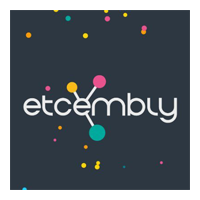
GE HealthCare
AI orchestration for healthcare IT
- Headquarters: Chicago, Illinois, United States
- Founded: 1994
- Annual revenue: $19.7 billion
GE HealthCare, spun off from GE in January 2023, has launched an AI orchestration platform that integrates AI-powered clinical tools into radiology workflows for both GE and non-GE devices, improving diagnostic accuracy. In 2024, the company acquired the remaining 50 percent of Nihon Medi-Physics to expand its presence in the molecular imaging market. It also partnered with Nuffield Health to deploy AI diagnostic tools across the UK and collaborated with Sutter Health and RadNet to advance AI imaging. GE HealthCare is working with Alfred Health to implement its Command Center software for hospital operations.

Insilico Medicine
AI pharmaceutical product development and design
- Headquarters: Boston, Massachusetts, United States
- Founded: 2014
- Annual revenue: $63.4 billion
Insilico Medicine is a research and development company that uses artificial intelligence for smarter biology and chemistry research and pharmaceutical analytics. Its Pharma.AI suite includes PandaOmics, a tool for multi-omics novel target discovery and deep biology analysis; Chemistry42, an ML-powered tool for drug design and automated novel molecule creation; and InClinico, a tool that can both design and predict the success rate of a clinical trial.

Medtronic
AI-powered polyp detection and diagnosis
- Headquarters: Minneapolis, Minnesota, United States
- Founded: 1949
- Annual revenue: $32.364 billion
Medtronic is an innovative AI medical company, specializing in device makers. It developed the Genius AI solution, which enhances the detection of polyps in colonoscopies. The company has partnered with NVIDIA to use AI to create a range of next-gen tools for diagnosis and treatment, Medtronic also expanded its capabilities in minimally invasive surgery by acquiring Fortimedix Surgical, a Netherlands-based company focused on instruments for endoscopic and robotic procedures.

Oncora Medical
AI healthcare digital assistant solutions provider
- Headquarters: Philadelphia, Pennsylvania, United States
- Founded: 2014
- Annual revenue: $683,100
Oncora Medical’s machine learning software supports oncology care by automating administrative tasks for healthcare professionals. Its platform supports physician documentation, ingesting prior notes and reports, requesting missing data, and creating necessary documentation for clinical, billing, and accreditation purposes. Oncora Medical also offers solutions for clinical workflow management, revenue cycle management, and cancer registry automation. In November 2023, they entered into a strategic partnership with ONCO, Inc. to develop advanced cancer registry, reporting, and analytics software.

Owkin
AI predictive analytics for drug development
- Headquarters: New York, United States
- Founded: 2016
- Annual Revenue: $75.4 million
Owkin uses AI to drive predictive analytics for the development of better drug solutions across various diseases. The company’s platform facilitates collaboration between data scientists and academic researchers, leveraging AI to enhance drug discovery and development processes. Owkin has received significant support through a strategic alliance with Sanofi, a French multinational pharmaceutical company, which includes a $180 million investment.

Paige AI
AI imaging technology for cancer diagnostics
- Headquarters: New York, United States
- Founded: 2017
- Annual revenue: $29.4 million
Paige AI is a generative AI company in the healthcare sector that focuses on pathology, specifically cancer diagnostics. Its detailed imaging technology, AI-driven workflows and recommendations, and other smart features assist healthcare professionals in breast and prostate cancer diagnosis as well as in optimizing hospital and lab operations. Paige collaborates with Microsoft to scale its technology globally, relying on its cloud infrastructure and AI resources to refine cancer diagnosis and treatment through advanced AI models and digital pathology solutions.

PathAI
Pathology-focused AI company
- Headquarters: Boston, Massachusetts, United States
- Founded: 2016
- Annual revenue: $88.8 million
PathAI is one of the most advanced pathology-focused AI companies today, giving patients, laboratories, and pharmaceutical companies alike access to AI-driven insights and solutions they need. Its AI algorithms enhance clinical trials, AI companion diagnostics, pre-screening predictions, spatial analyses, and translational research. Its algorithms and products specifically support biomarker quantification for various cancers, disease severity assessments, quality control, tumor cellularity quantification, and molecular prediction. PathAI has formed a significant partnership with Quest Diagnostics, where Quest licenses PathAI’s AISight digital pathology image management system and serves as a preferred partner for PathAI’s biopharmaceutical clients, while also collaborating on AI algorithm development. PathAI continues to expand its AISight adoption with various laboratory partners to extend its reach in the pathology sector.

Stryker
AI assistance in medical procedures
- Headquarters: Kalamazoo, Michigan, United States
- Founded: 1941
- Annual revenue: $22.6 billion
Stryker, a large and well-established medical device maker, has been aggressively expanding its offerings through strategic acquisitions. In 2021, it acquired AI firm Gauss Surgical, advancing its integration of AI technologies like the Mako robotic system. From 2024 to 2025, Stryker continued this momentum with key acquisitions — including Care.ai, Vertos Medical, NICO Corporation, Inari Medical, MOLLI Surgical, Artelon, and select products from SERF and 4WEB — broadening its presence in digital health, spine care, neurotech, vascular, oncology, and orthopedic solutions.
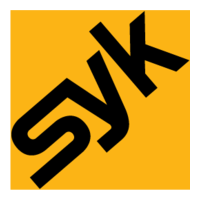
Tempus AI
AI insights for radiology images
- Headquarters: Chicago, Illinois, United States
- Founded: 2015
- Annual revenue: $693.4 million
To enhance medical imaging, Arterys — now merged with Tempus Radiology — accesses cloud-based GPU processors, which it uses to support a deep learning application that examines and assesses heart ventricles. This AI-based automated measurement of ventricles allows healthcare professionals to make far more informed decisions. With its merger with Tempus, its focus has expanded to look at radiology images in different formats. Tempus has further expanded its capabilities through the acquisition of Deep 6 AI in 2025, a platform that leverages AI to streamline clinical trials by matching patients with trials more efficiently, supercharging Tempus’s network and reach in precision medicine.

Viz.ai
AI platform for patient care coordination
- Headquarters: San Francisco, California, United States
- Founded: 2016
- Annual revenue: $85.1 million
Viz.ai offers AI-powered platforms and applications for care coordination, ensuring holistic patient care across healthcare providers. The Viz.ai One platform supports neurology, cardiovascular, vascular, trauma, and radiology by providing insights, images, alerts, and communications, enabling quicker and more accurate diagnoses. Viz.ai has established significant partnerships, including collaborations with Microsoft to integrate AI into clinical workflows, and with Cleerly and the Addario Lung Cancer Medical Institute to advance care in cardiology and oncology.

Financial Services AI Companies
It’s clear that financial services firms are actively embracing artificial intelligence. Bank of America, in a breathless note to the investment community, opined that AI is the new electricity. So what exactly does this look like in an industry that is riddled with regulations, complexities, and longtime, established vendors that may be hesitant to try something new? The companies in this category are vying to show us.
AlphaSense
AI for finance intelligence in public and private companies
- Headquarters: New York, United States
- Founded: 2011
- Annual revenue: $400 million
AlphaSense competes in the lucrative business data market against big players like Bloomberg. Among AlphaSense’s AI-fueled initiatives, the company is developing a solution that can summarize financial reports to more quickly reveal salient data trends. Recently, AlphaSense announced plans to acquire Tegus, which will certainly expand its financial data and workflow capabilities even further. The acquisition of Tegus, completed in July 2024 for $930 million, has significantly enhanced AlphaSense’s offerings by integrating Tegus’s extensive database of private company data and expert research into its AI-powered platform.

Brighterion (Mastercard)
AI solutions developer for financial services companies
- Headquarters: San Francisco, California, United States
- Founded: 1999
- Annual revenue: $12.6 million
Acquired by Mastercard in 2017, Brighterion continues to serve Mastercard’s AI needs and provide AI services to other companies. Brighterion’s AI Express offers customized AI solutions tailored for financial services companies. This AI company has collaborated with Elavon to bolster fraud protection and is working with Network International and PayU to integrate its AI solutions across various markets.

Capital One
AI for loan, fraud, and customer service management
- Headquarters: McLean, Virginia, United States
- Founded: 1994
- Annual revenue: $27.4 billion
Capital One is a prime example of how financial institutions are finding multiple ways to leverage artificial intelligence alongside tried and true business methods. The financial company’s many AI initiatives include explainable AI, which makes the loan approval process transparent; anomaly detection, which helps fight fraud; and NLP, which improves virtual assistants for customer service. In addition, Capital One is in the process of acquiring Discover Financial Services in a $35.3 billion deal, aiming to create the largest U.S. credit card issuer and a global payments platform while expanding access to underserved communities through a $265 billion community benefits plan.

DataVisor
AI for fraud mitigation across transaction types
- Headquarters: Mountain View, California, United States
- Founded: 2013
- Annual revenue: $32.5 million
DataVisor deploys AI to combat fraud across many transaction types, from digital payments to fintech platforms. For instance, it monitors transactions in real time to block credit card fraud and protects ACH and Zelle payments to fight unauthorized payments.

HighRadius
Machine learning technology for accounts receivable automation
- Headquarters: Houston, Texas, United States
- Founded: 2006
- Annual revenue: $945.2 million
A leading player in the accounts receivable automation software sector, HighRadius uses machine learning to help with labor-intensive tasks like matching payments with invoicing and assigning credit limits. The company acquired Cforia Software, a provider of billing and collections automation software, adding over 100 new customers globally. HighRadius partners with Citi to broaden its financial services offerings.

Intuit
Financial assistant technology for business leaders
- Headquarters: Mountain View, California, United States
- Founded: 1983
- Annual revenue: $16.3 billion
Intuit provides both guided and self-service finance and tax tools through products such as TurboTax, Credit Karma, Mint, QuickBooks, and Mailchimp. The company recently released Intuit Assist, a generative AI financial assistant offering smart recommendations for SMB leaders across TurboTax, Credit Karma, QuickBooks, and Mailchimp. Additionally, Intuit acquired technology from Zendrive, improving its usage-based auto insurance product, Karma Drive, under Credit Karma. Intuit also continues to develop its AI research program, focusing on innovations such as explainable AI and generative AI.
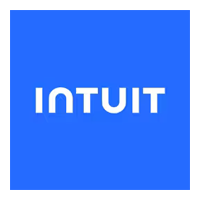
Numerai
AI-powered stock market prediction platform
- Headquarters: San Francisco, California, United States
- Founded: 2015
- Annual revenue: $10.4 million
Numerai operates an AI-driven hedge fund that utilizes machine learning models developed by a global network of data scientists to predict stock market movements. Through its data science competition, the Numerai Tournament, participants build predictive models using provided datasets. These models are evaluated based on performance, and contributors can stake Numeraire (NMR), the company’s cryptocurrency, on their models to potentially earn rewards or incur losses. The most effective models are integrated into Numerai’s Meta Model, which informs the company’s trading strategies.

Ocrolus
Automated financial document analysis solutions
- Headquarters: New York, United States
- Founded: 2014
- Annual revenue: $252.1 million
The demand for AI-driven automation in finance is significant, as firms must process vast amounts of complex data. Ocrolus addresses this need by helping banks and lenders detect fraud and make faster decisions through automated financial document analysis. It has teamed up with Dragin Technologies to improve small business financing and partnered with LendSaaS to streamline merchant cash advance (MCA) origination — focusing on deepening its capabilities through collaboration.

Signifyd
AI for fraud detection and mitigation
- Headquarters: San Jose, California, United States
- Founded: 2011
- Annual revenue: $105 million
Signifyd is a company that uses AI to create a “score”—from 0 to 1,000—to fight fraud in the financial sector. While the trend of deploying AI to combat financial malfeasance is sweeping the industry, Signifyd claims to distinguish itself by boosting transaction approvals and dramatically lessening false declines.

Stripe
Partnership with OpenAI to improve document and content processing
- Headquarters: San Francisco, California, United States
- Founded: 2010
- Annual revenue: $2.2 billion
Stripe is a SaaS-based financial services company renowned for its user-friendly payment processing features. Recently, Stripe has made significant strides in both AI and digital assets. It has partnered with OpenAI, deploying GPT-4 for enhanced documentation and content generation in Stripe Docs, while also supporting OpenAI’s checkout processes through Stripe Billing. Stripe has also expanded its support to over 700 AI agent startups. In a major move into digital assets, Stripe acquired Bridge, a stablecoin orchestration platform, for $1.1 billion, marking its largest acquisition to date.

Zest AI
AI for borrower data research optimization
- Headquarters: Burbank, California, United States
- Founded: 2009
- Annual revenue: $21 million
Zest AI uses AI to improve credit underwriting for financial institutions. Its machine learning models analyze borrower data to enhance risk assessment, enabling lenders to make more accurate decisions and extend credit to individuals with limited credit histories. The company offers AI-driven tools like LuLu Pulse, a generative AI-powered lending intelligence platform giving strategic insights and performance metrics to credit unions. Zest AI’s technology integrates alternative data sources and advanced analytics to promote fair and inclusive lending practices.
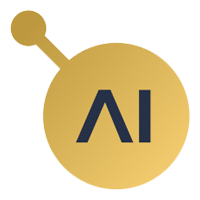
Education AI Companies
One of the great promises of AI in education is facilitating one-on-one tutoring and coaching, to markedly boost student performance. If this comes to fruition, AI teachers will conduct lessons at a far-lower cost than human tutors. AI can also support teachers, helping them quickly craft lesson plans and other educational resources. All of this is simply guesswork, as AI has only started to prove its capabilities in this area. In any case, learning how to use AI will become a core skill for students as it becomes woven into every element of work and culture.
Amira Learning
AI for gamified reading and literacy training
- Headquarters: San Francisco, California, United States
- Founded: 2018
- Annual revenue: $13.3 million
Amira Learning is an AI company focused on improving student literacy through automated reading fluency and comprehension support. In June 2024, it merged with Istation to expand its reach in K–12 education, targeting 15% market share and over 1,800 school districts by year’s end. Amira also partners with government agencies, including the Louisiana Department of Education, to provide AI tutoring tools to thousands of students across multiple districts.

Carnegie Learning
AI education app for mathematics
- Headquarters: Pittsburgh, Pennsylvania, United States
- Founded: 1998
- Annual revenue: $289.9 million
Carnegie Learning, currently owned by Madison Dearborn, continues to focus on the K-12 market with its renowned MATHia with LiveLab, an advanced AI learning app. This app utilizes an AI-powered cognitive learning system to support math education, providing students with personalized one-on-one interactions that allow them to work at a pace tailored to their skill level. Since Madison Dearborn’s investment in 2020, Carnegie Learning has doubled in size and made several strategic acquisitions, including Scientific Learning, Zorbits, Muse Global’s curriculum assets, and Literacy Design Collaborative.
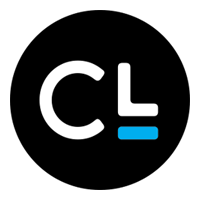
CENTURY
Algorithmic matching for student learning programs
- Headquarters: London, United Kingdom
- Founded: 2013
- Annual revenue: $17.5 million
CENTURY is a U.K.-based educational platform company that uses neuroscience to enable enhanced learning in various high school and college core topics. The company uses algorithms similar to those used at Netflix and Amazon to match previous student experiences with what they should focus on next for optimal educational progress. Additionally, the platform offloads some repetitive teaching tasks so teachers can spend more time focusing on students’ needs. CENTURY has been involved in supporting Syrian refugee children by implementing its AI technology in public schools in Lebanon, in partnership with the Lebanese Ministry of Education, to improve access to quality education.

Cognii
AI for creative student assessment formats
- Headquarters: San Francisco, California, United States
- Founded: 2013
- Annual revenue: Undisclosed
Cognii’s Virtual Learning Assistant (VLA) platform speaks with students in real time, providing one-on-one coaching. The goal is to transcend the limits of a multiple-choice question format and offer a wide-ranging conversation. The company’s NLP tools respond to students’ own language styles.

Duolingo
OpenAI-powered language-learning technology
- Headquarters: Pittsburgh, Pennsylvania, United States
- Founded: 2011
- Annual revenue: $748 million
Duolingo is an edtech company that applies machine learning to personalize language education, adapting content to each learner’s skill level and progress. It introduced advanced features like interactive roleplay and instant feedback using OpenAI’s GPT-4. In July 2024, Duolingo acquired Detroit-based animation studio Hobbes, expanding its motion design capabilities to create a more engaging learning experience.

ELSA
AI for learning English as a non-native speaker
- Headquarters: Los Gatos, California, United States
- Founded: 2015
- Annual revenue: $33.3 million
ELSA is an AI company focused on improving spoken English for non-native speakers through automated speech analysis and personalized learning. Its technology evaluates pronunciation, accent, and fluency to deliver tailored feedback and course recommendations. ELSA operates across corporate and educational settings, offering scalable language training solutions. The company is backed by Gradient Ventures, Google’s AI-focused fund, supporting its growth and development in speech technology.

McGraw Hill
AI-driven child development and learning app
- Headquarters: New York, United States
- Founded: 1888
- Annual revenue: $1.1 billion
Kidaptive’s “adaptive” AI technology is referenced in its name. Founded by two Stanford alumni, Kidaptive’s Adaptive Learning Platform is heavy on next-gen technology: It uses a multi-tenant cloud deployment and is supported by Hadoop. Solutions include Learner Mosaic and Leo’s Pad to support what it calls “playful, whole child development.” Kidaptive was acquired by McGraw Hill in 2021.

Querium
AI tutor for advanced STEM projects
- Headquarters: Austin, Texas, United States
- Founded: 2013
- Annual revenue: Undisclosed
Focusing on short-form lessons in the STEM sector, Querium’s StepWise AI tutor provides students with constant feedback as they work through challenging projects. It is designed to detect issues and provide personalized assistance. The company promotes its “AI based on the wisdom of master teachers.”

Squirrel AI Learning
AI for adaptive, personalized learning programs
- Headquarters: Shanghai, China
- Founded: 2014
- Annual revenue: $324 million
Based in China, Squirrel Ai Learning incorporates AI to drive adaptive learning for students at a low cost, focusing on personalized tutoring in the K-12 sector. The company’s engineers break down subjects into smaller sections, enabling the AI platform to pinpoint where each student needs help. Squirrel Ai operates over 3,000 physical learning centers worldwide, combining advanced technology with human teaching expertise for a comprehensive learning experience.

Cybersecurity AI Companies
The challenge with listing today’s AI cybersecurity companies is that nearly every major security vendor now claims to use AI — so “top AI cybersecurity companies” ends up looking a lot like “top cybersecurity companies.” Some experts question how effective AI in security really is, suggesting the tech is still immature despite the hype. Regardless, AI is becoming an increasingly common layer in modern cybersecurity strategies, with its role expected to grow as the technology evolves.
Abnormal Security
AI intelligence for employee security practices
- Headquarters: San Francisco, California, United States
- Founded: 2018
- Annual revenue: $126 million
Email remains a common entry point for cyberattacks, with phishing attempts often reaching entire organizations. Abnormal Security reduces this risk by analyzing communication patterns across a company to identify and stop unusual or potentially harmful messages. The company has partnered with and received investment from cybersecurity firm CrowdStrike. Abnormal is now planning to expand further, with an IPO expected by the end of 2025.

Arctic Wolf
AI security specialized in mobile IoT
- Headquarters: Eden Prairie, Minnesota, United States
- Founded: 2012
- Annual revenue: Undisclosed
Arctic Wolf delivers managed cybersecurity services such as threat detection, risk assessment, and incident response through its cloud-based platform. It serves over 5,500 organizations with continuous monitoring and support. To broaden its capabilities, the company acquired Cylance for endpoint protection, RootSecure for vulnerability management, Tetra Defense for incident response, and Revelstoke for automation, enhancing its threat response and security operations.

BigPanda
Machine learning and automation for improved observability
- Headquarters: Redwood City, California, United States
- Founded: 2012
- Annual revenue: $64 million
BigPanda is a key player in AIOps, using machine learning to link data changes with system topology to improve infrastructure monitoring. Its tools help teams detect and resolve issues faster, reducing the risk of outages. As an Advanced AWS Technology Partner, BigPanda integrates with services like Amazon CloudWatch to support cloud operations. Partnership with Verinext further strengthened its incident management capabilities, extending its role in IT operations.

Check Point
AI for phishing and DNS threat detection
- Headquarters: Tel Aviv, Israel
- Founded: 1993
- Annual revenue: $704 million
Check Point’s Quantum Titan offers three software blades that deploy deep learning and AI to support threat detection against phishing and DNS exploits. The company also focuses on IoT, with tools that apply zero-trust profiles to guard IoT devices in far-flung networks. Check Point acquired Cyberint Technologies in 2024, boosting its external risk management and threat intelligence offerings.

CrowdStrike
Managed and comprehensive XDR solution
- Headquarters: Austin, Texas, United States
- Founded: 2011
- Annual revenue: $4.02 billion
CrowdStrike delivers XDR (extended detection and response) by applying AI and automation to detect threats and reduce manual security work. Its managed XDR helps address the cybersecurity talent gap by automating tasks typically handled by experts. CrowdStrike has expanded its capabilities with the acquisitions of Adaptive Shield for SaaS security and Flow Security for cloud protection. It also partners with Accenture to integrate Falcon with managed security services.

To learn about the role of AI and perimeter protection in cybersecurity, see the eWeek video: CrowdStrike’s Amol Kulkarni on Trends in Cybersecurity.
Fortinet
AI for automated SOC optimization
- Headquarters: Sunnyvale, California, United States
- Founded: 2000
- Annual revenue: $5.96 billion
Fortinet runs an AI-driven security operations center (SOC) that detects threats designed to evade traditional defenses. Its system integrates with security tools across cloud, network, and endpoint environments. In 2024, Fortinet acquired Lacework for cloud and edge security, Next DLP for data loss prevention, and Perception Point for collaboration and email protection. These acquisitions strengthen its Security Fabric, bolstering enterprise-wide security.

Palo Alto Networks
AI-human partnership for security observability taskwork
- Headquarters: Santa Clara, California, United States
- Founded: 2005
- Annual revenue: $8 billion
Palo Alto Networks integrates AI-driven tools like Prisma SASE and ADEM to improve visibility across enterprise systems. It recently acquired IBM’s QRadar SaaS assets to expand its SIEM capabilities and deepen its partnership with IBM. Additional acquisitions include Talon Cyber Security for securing unmanaged devices and Dig Security for cloud data protection. Its partnership with Accenture supports using Precision AI to secure generative AI adoption across organizations.

SecurityScorecard
Supply chain detection and response
- Headquarters: New York, United States
- Founded: 2013
- Annual revenue: $113.4 million
SecurityScorecard has shifted its focus to supply chain cyber risk management, moving beyond its original role as a security ratings provider. Its platform, which evaluates organizations across ten risk factors using external data and threat intelligence, now supports managed services like SecurityScorecard MAX to address third-party risk. The company also introduced the Cyber Resilience Scorecard to link cybersecurity with economic resilience. Through new services and partnerships, SecurityScorecard delivers actionable insights across complex vendor networks.

SentinelOne
Comprehensive AI endpoint, cloud, and identity security solutions
- Headquarters: Mountain View, California, United States
- Founded: 2013
- Annual revenue: $859.7 million
SentinelOne is a cybersecurity company that uses AI to deliver threat detection and response across endpoints, cloud, and identity systems. It has advanced its generative AI capabilities to improve threat identification and remediation through reinforcement learning. SentinelOne’s acquisition of PingSafe in 2024 adds cloud-native application protection to its portfolio, supporting better coverage across enterprise environments.

Sophos
Longstanding leader and innovator in AI-powered cybersecurity
- Headquarters: Abingdon, Oxfordshire, United Kingdom
- Founded: 1987
- Annual revenue: $706 million
Sophos, a longtime player in AI-driven cybersecurity, launched its AI initiative in 2017 to advance machine learning for security and human-AI interaction. Its tools cover endpoint detection, encryption, and unified threat management. In February 2025, Sophos acquired Secureworks for $859 million, adding XDR capabilities and making it the largest pure-play provider of Managed Detection and Response services. The deal brings in Secureworks’ Taegis platform and Counter Threat Unit, strengthening Sophos’s threat intelligence and enterprise security operations.

To learn how AI is dramatically reshaping security, see the eWeek video: Sophos CTO Joe Levy on AI in Cybersecurity.
Vectra AI
AI for multi-mode cybersecurity measures
- Headquarters: San Jose, California, United States
- Founded: 2011
- Annual revenue: $121.8 million
Vectra AI applies artificial intelligence to identify and respond to threats across hybrid and multi-cloud environments. Its technology connects with SIEM systems for deeper metadata analysis and real-time attack detection. Partnerships with AWS and Azure expand its cloud security coverage. Vectra’s Clarity Program offers Managed Security Service Providers dedicated resources for delivering XDR solutions.

Zscaler
AI-powered protection of zero-trust architecture
- Headquarters: San Jose, California, United States
- Founded: 2007
- Annual revenue: $592.9 million
Zscaler leverages zero-trust architecture, a cutting-edge cybersecurity approach that strictly limits and compartmentalizes system access, significantly reducing potential exposure to hackers. The company’s AI models are trained on a massive trove of data to enable it to constantly monitor and protect this zero-trust architecture. In April 2024, Zscaler acquired Airgap Networks, another leading cybersecurity and AI solutions provider. With this move toward AI expansion, expect to see Zscaler’s technologies benefit from Airagap’s innovations, such as ThreatGPT, an OpenAI-powered solution for security analytics, vulnerability detection, and network segmentation support.

Retail AI Companies
AI in retail typically focuses on personalizing the customer experience and supporting automation and data analytics to improve the supply chain. To fully portray AI’s role in retail, this section lists both AI vendors and large retailers that deploy AI. Both groups play a crucial role in creating and enhancing the many uses for AI in retail.
Accenture
Platform for dynamic merchandising and other retail optimization opportunities
- Headquarters: Dublin, Ireland
- Founded: 1989
- Annual revenue: $64.9 billion
Accenture’s ai.RETAIL platform helps retailers use AI to turn data into real-time actions that improve performance, including dynamic merchandising and predictive insights to anticipate trends. The firm has made key acquisitions to enhance its offerings: Logic Information Systems for retail tech, Consus.health for healthcare consulting, Joshua Tree Group for supply chain optimization, Allitix for data analytics, and Soben for construction consultancy. It also expanded its AI Refinery with industry-specific AI agents, reinforcing its leadership in applying AI across sectors to drive business growth and innovation.

Bloomreach
AI-driven search and merchandising
- Headquarters: Mountain View, California, United States
- Founded: 2009
- Annual revenue: $150 million
Bloomreach delivers AI solutions for retail, including Discovery for search and merchandising, Engagement as a customer data platform, and Clarity, a conversational shopping tool enhanced by the acquisition of Radiance Commerce. Its purchase of Exponea added advanced customer data and personalization across marketing channels. As a specialized AI vendor, Bloomreach meets the growing demand from retailers without in-house AI capabilities.

Companion
AI companion for pets
- Headquarters: San Francisco, California, United States
- Founded: 2016
- Annual revenue: Undisclosed
An AI-powered companion for your dog, Companion’s box (about the height of an average dog) uses machine vision and machine learning to interact with your pet in real time. The device can even dispense treats, which should help with any behavioral training goals. The company also plans to release an AI companion for cats; given feline insouciance, the training modules might not be so well received.

StrataVision
Computer vision and AI for storefront monitoring
- Headquarters: San Carlos, California, United States
- Founded: 2016
- Annual revenue: $15 million
StrataVision, formerly Deep North, provides AI-powered computer vision tools that help retailers analyze customer behavior in physical stores. Its offerings, including Store-Within-a-Store Analytics and Retail Smart Alerts, deliver insights on customer interactions and operational issues, helping retailers boost sales and efficiency.

Lowe’s
Partnership with Nvidia to create more data-driven retail processes
- Headquarters: Mooresville, North Carolina, United States
- Founded: 1921
- Annual revenue: $86.4 billion
Lowe’s uses NVIDIA’s AI-based Omniverse to create a digital twin that lets retail staff access and interact with store data, aiming to streamline operations and improve customer service. The system also supports a virtual 3D product catalog. Lowe’s plans to open 10 to 15 new stores annually in high-growth U.S. markets, targeting both DIY and professional customers.
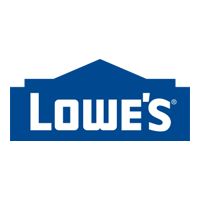
Innovative Eyewear
Smart glasses that can hear
- Headquarters: Miami, Florida, United States
- Founded: 2019
- Annual revenue: $1.63 million
Innovative Eyewear, the developer of smart eyewear under the Lucyd, Nautica, and Eddie Bauer brands, has unveiled a smartphone app that enables voice interaction with ChatGPT through their glasses’ built-in microphones and speakers. This company’s innovation introduces a new niche in the wearables sector that seamlessly integrates AI assistance into everyday eyewear.
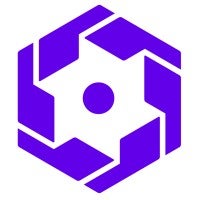
Shelf Engine
AI for stock and inventory optimization
- Headquarters: Seattle, Washington, United States
- Founded: 2016
- Annual revenue: $36.1 million
Shelf Engine is an AI startup tackling a key retail challenge: optimizing inventory orders, especially for perishables like fruits and vegetables. Its technology automates stocking to reduce waste and keep shelves full. After a successful pilot in 400 stores, Shelf Engine is partnering with Dollar General to expand its AI-powered ordering system to about 3,000 stores nationwide.

Standard AI
AI for autonomous retail experiences
- Headquarters: San Francisco, California, United States
- Founded: 2017
- Annual revenue: $29.4 million
Clearly the wave of the future, Standard AI is an AI platform that allows customers browsing in stores to select and buy their item choices without the delay of paying a cashier. The strategy is autonomous retail, in which retail locations are retrofitted with AI technology to streamline the shopping experience.

Veesual
AI-powered virtual-try-on app
- Headquarters: Paris, Ile-de-France, France
- Founded: 2020
- Annual revenue: Undisclosed
Veesual is a virtual try-on company that allows users to customize outfits, virtual models, and the digital dressing room experience. Its technology uses deep learning to ensure clothing images appear realistic and retain detail when combined with model imagery. With a customer experience–driven approach, Veesual helps shoppers find and visualize the best sizes for their needs. The company plans to open its first U.S. office in New York City in 2025. A strategic partnership with Eileen Fisher will bring Veesual’s virtual try-on capabilities to the brand’s online platform, enhancing both customer experience and inclusivity.

AI Industry Organizations
These AI industry organizations play a number of roles — and foremost, they advocate for the regulation of artificial intelligence. This is a highly critical focus, given how AI’s exponential growth will affect everything around it. To what extent can we as a society impose guidelines on AI’s growth, which has thus far been driven by pure profit? These AI organizations support cross-vendor development of AI to promote the overall advancement of the technology.
AI Now Institute
AI Now Institute produces policy research to confront the unchecked power of tech companies in shaping AI. The organization advocates for regulatory frameworks, institutional oversight, and human rights-centered governance to ensure AI development aligns with public interest, not corporate agendas.

Association for the Advancement of Artificial Intelligence
Association for the Advancement of Artificial Intelligence (AAAI) advances AI through research, education, and ethical guidance. AAAI promotes responsible development by organizing scientific discourse, shaping long-term research priorities, and encouraging thoughtful engagement with AI’s societal impacts.

Machine Intelligence Research Institute (MIRI)
Originally known as the Singularity Institute for Artificial Intelligence, MIRI supports research to ensure that smarter-than-human artificial intelligence has a positive impact. It concentrates on strict safety standards, international policy coordination, and halting high-risk AI development until alignment and control mechanisms are proven effective. Among the cautionary articles that MIRI has posted is Pausing AI Developments Isn’t Enough. We Need to Shut it All Down.

Partnership on AI
Founded by a consortium of tech giants — Google, Meta, Amazon, IBM, and Microsoft — Partnership on AI is a nonprofit established in 2016 with a mission to research best practices for AI systems. It brings together diverse voices from across the AI community. The organization includes more than 100 partners from academia and business.

The Rockefeller Foundation
Although AI is just one of its many focus areas, the Rockefeller Foundation remains highly active in the sector. For example, a core focus of the foundation is responsible AI governance. The organization issued a report called AI+1: Shaping Our Integrated Future based on conclusions from a diverse group of experts who seek to deploy machine learning for positive social impact. Additionally, the foundation makes grants, including donating $500,000 to Black in AI.

To learn about the many challenges in AI ethics, see the eWeek video: Rockefeller Foundation’s Zia Khan on AI and Ethics.
Bottom Line: AI Companies
This list of AI companies is a partial, evolving portrait — a quick snapshot of something moving too fast to fully capture. Generative AI, especially, is changing by the day, with constant updates, investments, and new tools. AI’s progress isn’t linear; its exponential nature means algorithms learn faster as they go, making both the technology — and this list — likely to shift without notice.
As funding grows, so does innovation across the core AI stack: machine learning, deep learning, neural networks, and generative AI. New genAI use cases are emerging constantly. This isn’t just digital transformation — it’s a full-scale shift, and the next version of this list may look entirely different.
To learn about AI certifications that can advance your career, see our guide, Top AI Certifications.
The post Top AI Companies in 2025: Visionaries Driving the AI Revolution appeared first on eWEEK.
Read more here:: www.eweek.com/rss.xml




